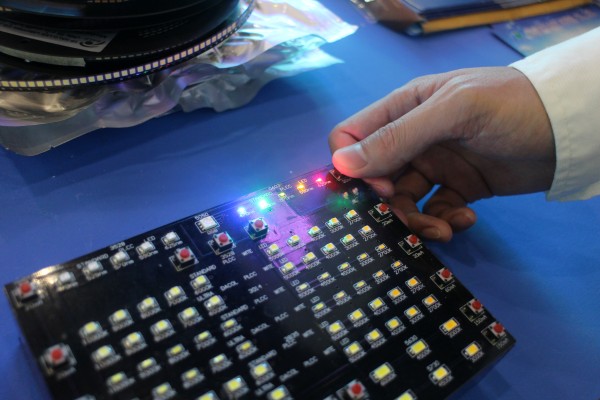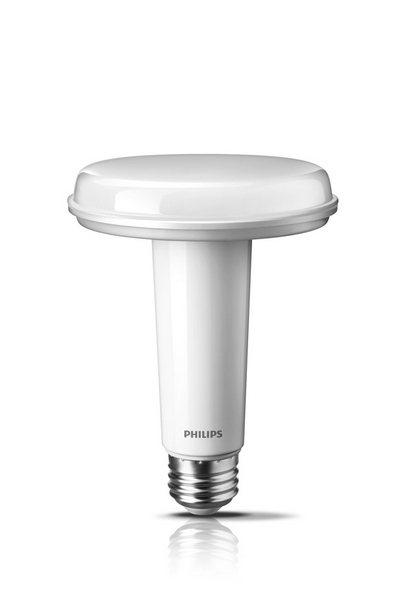Prices Fall Despite Soaring LED Lighting Market Growth
Global LED package market is estimated to achieve US $14.6 billion in 2014, and grows at a CAGR of 3.2% during 2014-2018. Among all LED applications, LED lighting has the highest estimated revenue of US $4.8 billion in 2014, soaring with a CAGR of 12%. These figures suggest that LED lighting market has entered a high growth phase. Nevertheless, the prices of LED lighting products, such as lighting bulbs and tubes show a steady downfall trend.
In December 2013, global 40W equiv. LED bulb average selling price (ASP) was US $15.4 and global 60W equiv. LEDs ASP was US $21.5. Last month, 40W equiv. LED bulb prices were reportedly down 18.83% to US $12.5, since December 2013, while 60W equiv. LED bulb prices was down 21.86% to US $16.8. LED bulb prices declines were most evident in China, especially for standard to mid-power LEDs. ASP for 40W equiv. bulb achieved US $7.4 in China during April 2014, while global 40W equiv. bulb was US $15.4. ASP for 40W equiv. bulb in China was down to US $4.5 during November. ASP for 40W equiv. bulb in China is roughly half the price of global ASP in April 2014, but almost one third of global ASP seven months later.
Related:
Chinese Manufacturers Driving LED Low Price Trends
Relying on growing domestic demand, China has successfully overtaken Taiwan as the world’s largest LED chips maker. Chinese manufacturers have effectively brought down costs by means of standardization to reach economics of scale. Chinese manufacturers’ success in launching high C/P 0.2W 2835 LED chips has led to its Asian competitors to follow up, abandoning the tradition of 3030 LED. Global LED chip market trend tilted towards standard to mid-power LEDs as a result to the emergence of Chinese manufacturers.
Related:
 |
(LEDinside)
|
Having received MOCVDs subsidies from local authorities, Chinese LED manufacturers are able to ship low cost LEDs. Each MOCVD costs approximately US $1.0 million to 1.2 million, where 67% to 80% or US $ 0.8 million of the payment are subsidized. Due to this reason, Chinese manufacturers have minimal financial burdens from equipment costs, which can be reflected from effective aggressive pricing. Major manufacturers such as San’an Opto, Refond, Changelight, Aucksun, HC SemiTek, to name a few, were among the firms that benefited from China’s subsidy schemes in 2014.
Related:
Low Cost Trend Triggers LED Industry Restructuring
The spread of low price trend caused massive impact to the industry, for example, Philips’s spun off its LED component business, Samsung exited global LED component market, Epistar’s acquisition of FOREPI. Some were due to financial difficulties, others based on market strategies.
Market competition also attributed to the rally of manufacturer groups. Nichia, for instance, has posted a company spokesperson in Taiwan and is interpreted as a collaboration invitation with Taiwanese LED manufacturers. A lighting alliance led by Chinese LED manufacturer Dark Energy were formed to negotiate standard LED specs, actual production volume, and product pricing.
Related:
In China particularly, numbers of SMEs reportedly troubled with financial crisis. Due to the economies of scale advantage, major manufacturers can remain profitable with relative low prices. SME competitors on the other hand, were forced to sell below average costs. Hence, a series of bankruptcies erupted among LED lighting SMEs. A Chinese vendor even went as far as selling LED bulbs at the price of US $1.61 per kilogram as a last resolve.
Related:
Creativity and Innovation Leads The Way Out
We have also witnessed some manufacturers took creative and innovative approaches to further drive down production costs. Lighting giant Philips, after the release of heat-sink free SlimStyle LED bulb in late 2013, has again launched a few “flattening” luminaries. These LED luminaries feature the removal or reduction of reliance on heat sink, using the thin and flat structure to dissipate heat. Cree followed up the trend by introducing heat-sinkless New Cree LED bulb which dissipate heat with air circulation.
Related:
 |
|
Philips SlimStyle BR30 indoor floodlight eliminates heat sink. (LEDinside/Philips) |
Light Beyond the Tunnel
Perhaps one of the biggest news of the year came some ten days before 2015. Chinese government decided to tighten local government subsidiaries given to LED manufacturers in the form of taxes or other development stimulating subsidies. The government statement wrote that some of these local subsidies have disturbed market order and affected macroeconomic policies, some even violated international trading agreement. In future, all of the subsidies issued by local authorities are bound to submit to central government for approval.
Related:
With the tightening of LED subsidies, the market is expected to return to norm in coming year, and some companies may benefit from rebounding LED price.
(Author: Lichun Low, Editor and Translator, LEDinside)












